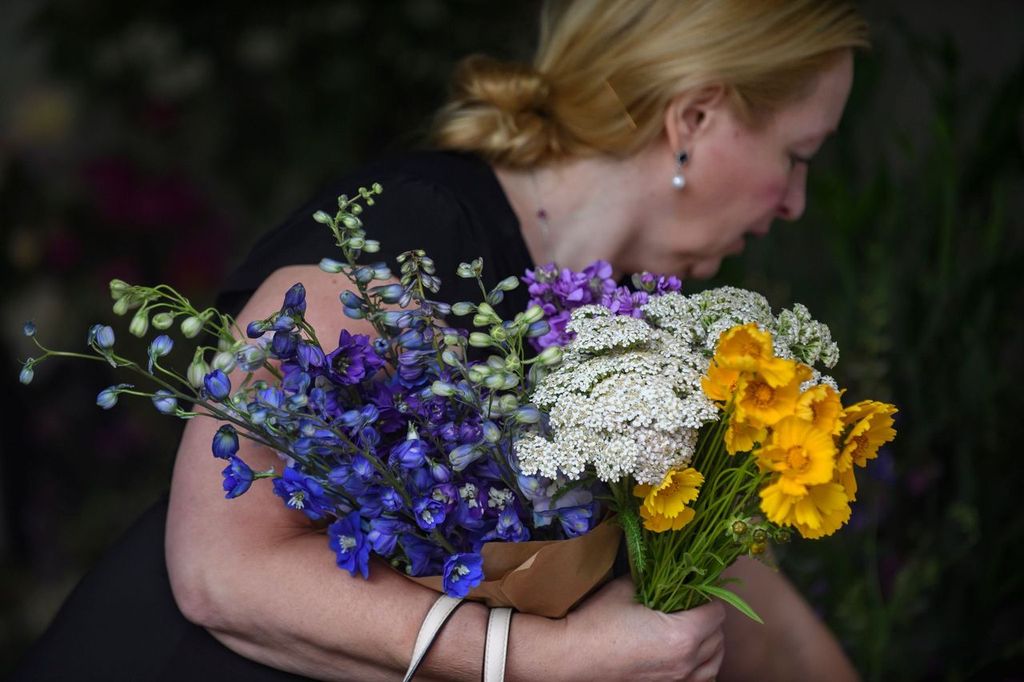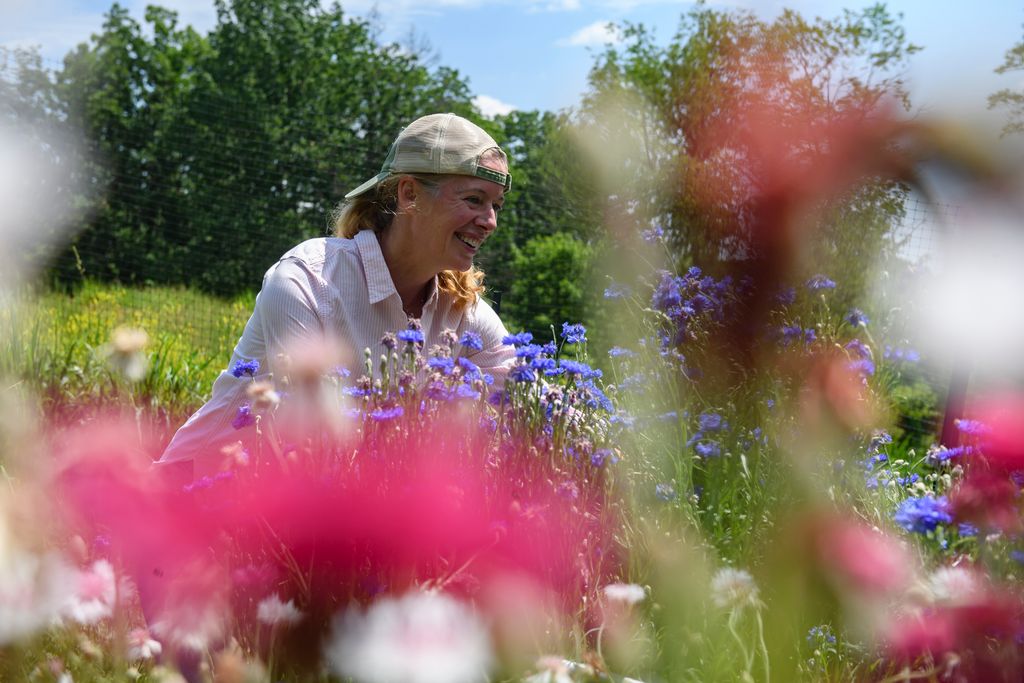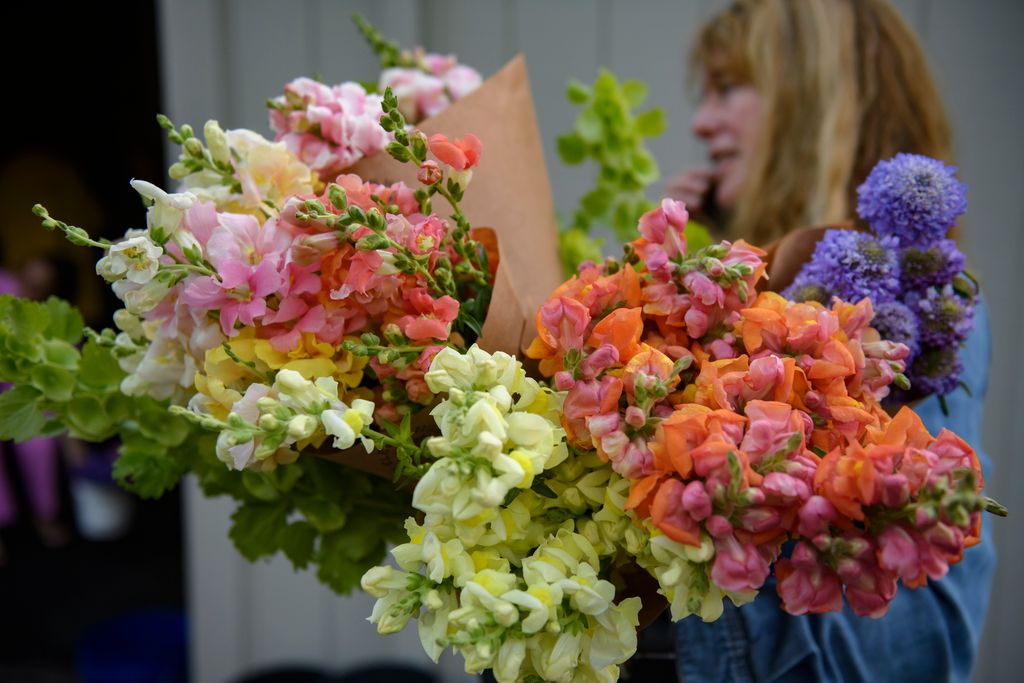Becca Myerburg, co-founder of Eleven Mile Farm, is one of several flower-grower members of the Greater Pittsburgh Flower Collective. She shares the story of this fresh-as-a-daisy collaboration, whose goal is to offer locally grown blossoms to the region’s businesses and event planners.
Pittsburgh was once a thriving producer of flowers used by retailers and designers. In fact, Pittsburgh Cut Flowers, located just outside of the city, was one of the country’s largest rose growers. However, competition from international flower farms challenged local productivity and by the mid-‘80s the majority of domestic flower growers closed their doors. Today, most flowers grow across the country or fly into the United States from international farming businesses. Local growers are working to change that.

The Benefits of Locally Grown Florals
In recent years, there has been increasing awareness of the benefits of domestic seasonal flowers. Using local flowers reduces expensive shipping costs, and seasonal flowers can be enjoyed without the use of preservative chemicals or significantly altered growing conditions. The quality of the flowers often is better as they are grown sustainably and the time between harvest and use is minimal. Further, harvest can be better timed for the perfect amount of openness of the product. Finally, independent growers can grow unique varieties that mass production cannot yield.
With increasing education and marketing, people are catching on and customers are requesting local, seasonal flowers for their designs and enjoyment. To meet this request, a number of flower farmers are embracing the challenge to bring local blooms back to the Pittsburgh area. Some are vegetable growers discovering the financial boost of flower farming, and some are avid gardeners who felt passionately about sharing flowers with others. Most are new to the flower farming business and have been self-taught. All face the challenges of growing amidst an ever-changing climate, and all benefit from the interconnectivity of the flower farming community.

All About the Greater Pittsburgh Flower Collective
Established in 2021 by Mary Peterson, the Greater Pittsburgh Flower Collective (soon to be rebranded the Pittsburgh Flower Exchange) aims to bring together local flower growers to provide wholesale seasonal flowers to florists, designers, and businesses in the area. Growers must go through an extensive application and interview process for acceptance to the collective. Florists can purchase flowers from the collective via a membership with Rooted Farmers, an online marketplace that connects local flower farmers, floral designers and flower enthusiasts. They can peruse available product the week prior to their needed date, and then pick up (or have delivered) their purchases at a local coffee shop, Ruckus Café, on specified days. At that time, they also can shop from product available on the floor. For special occasions, florists can coordinate with the collective to place any specific orders.

This model serves not only the florists who have access to a range of locally grown seasonal flowers and foliage, but also to the growers. Most flower farms locations are throughout the Pittsburgh area, and farmers’ ability to coordinate with florists depends on their location. Uniting the growers allows everyone to have access to a greater customer base, and the members of the collective are a team and support each other in growing and selling. The members work together to balance their offerings and provide a wide variety of product to florists while simultaneously sharing growing experiences and problem-solving challenges that arise each season.
With 13 current growers, the Collective is expanding to meet the demands of the florist community. While not open to the public, visit their website to learn about the growers and florists who use local product.

Members of the Greater Pittsburgh Flower Collective
Cutting Root Farm & Apothecary
Pyrrhic Victory Garden
Story by Becca Ringham Myerburg / Photography by Jeff Swensen
Subscribe to TABLE Magazine’s print edition.

